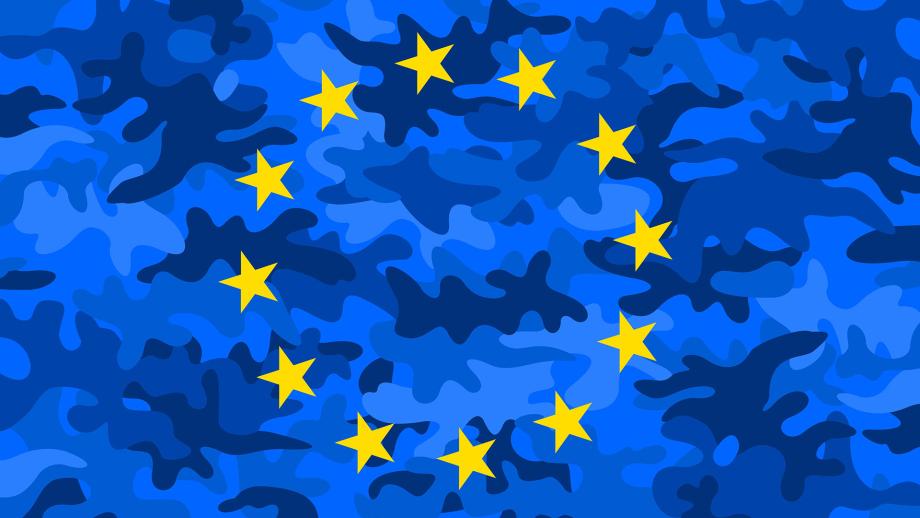Will Von der Leyen’s push for stronger European defence fly in Eastern Europe?

European Commission President Ursula von der Leyen recently delivered her second State of the Union Address (SOTEU), the EU’s attempt to copy a long-establish tradition in the United States and the United Kingdom. In her speech, which looks at the achievements of the past year and presents priorities for the year ahead, von der Leyen made the case for new EU tools that will enable the EU to move from a ‘defence ecosystem’ to a ‘defence union’.
“The good news is that over the past years, we have started to develop a European defence ecosystem, but what we need is the European defence union,” von der Leyen said in Strasbourg.
Following the West’s withdrawal from Afghanistan, her proposal comes at a time when Brussels is pushing to create a 5,000-strong “first entry force” by March 2022.
Von der Leyen named three European defence focus areas in the hope that the moves create a so-called “geopolitical Commission” – the long-time goal of European federalists, whose aim is to distance the EU from the 70-year-old transatlantic alliance.
The current Commission hopes to establish a ‘Joint Situational Awareness Center and to enhance interoperability between the 27 members of the EU. Brussels also wants to establish a potential waiver on value-added tax for all military and defence equipment that is manufactured in Europe.
Interestingly, Von der Leyen has claimed that French President Emmanuel Macron, who for some time has been calling for the EU to become more “strategically independent” – a sentiment that harkens back to the period between 1966-2007, when France fully withdrew from NATO’s Integrated Military Command Structures due to its hostility towards the strong bond between the US and UK, as well as Paris’ desire to forge closer ties with the Soviet Union and later Vladimir Putin’s Russia.
France will host a European defence summit in the first half of 2022. Along with the ongoing Strategic Compass process and the Conference on the Future of Europe, it will be yet another important development in the framework of the French presidency of the European Council, which will coincide with Macron’s bid for re-election next year.
Simultaneously, the success of all the above-mentioned processes will be a litmus test for the Franco-German attempt to push for further European integration following the two country’s elections and as Europe slowly pulls itself out of the COVID-19 pandemic.
Germany’s current defence minister, Annegret Kramp-Karrenbauer, said that the “EU needs (to take) a big leap forward on (European) defence,” adding that “Germany and France must (take the) lead.”
However, as opposed to Macron, von der Leyen avoided using the catchphrase ‘strategic sovereignty’, but she did talk about decreasing the EU’s “dependencies of today”. Her statement likely stems from the most recent exposure of long-standing cracks within the European Union over how far Europe should, or could, go to defend itself. While some European leaders project confidence in the EU’s ability to act autonomously from military and political superpowers like the US and Britain, others – particularly in former Eastern Bloc countries, view these with a high degree of scepticism.
The nations of Eastern Europe, together with the Baltics, share a pro-American concern that investing in European strategic autonomy will weaken the long-standing transatlantic bond and will become a synonym for European protectionism, especially now that the UK is no longer in the EU. There is also the prevailing (and ever-expanding) distrust of the EU, particularly when it comes to France’s eventual intentions. If Eastern Europe continues to be insufficiently consulted on matters of security sensibilities and interests, this might come at a high price that goes far beyond the countries’ investment in defence.
Von der Leyen’s proposals for more a non-NATO defence structure has already drawn some criticism from Eastern Europe as they see the redundancy of the project as nothing more than an unnecessary duplication of the North Atlantic Alliance and a misappropriation of manpower and money. This is exactly why the ex-Warsaw Pact nations are taking a cautious approach towards France’s concept of ‘strategic autonomy.
This does not, however, mean that the countries of Eastern Europe entirely oppose the concept of a European defence structure. These nations are merely cognizant of the fact that Europe remains dependent on outside powers in ways that are undesirable. But the devil lies in the details, and if European strategic autonomy is to materialize, the EU must first clarify the types of standards and capabilities it needs and its readiness to use them.
Most importantly, Brussels has to understand that the pursuance of EU strategic autonomy cannot, under any circumstances, weaken the transatlantic bond with the United States. Any discussions that call into question the role of NATO and the US in the region make every Eastern European country apprehensive. Because of this, Von der Leyen was obliged to announce the creation of a new EU-NATO Declaration that will be presented before the end of the year.
European economic autonomy must not be taken to autocratic extremes. The adoption of a strategic approach could potentially increase Europe’s economic power, both by developing new production and know-how capacities and, more importantly, enhance its role in the globalized economy by making its investment ties more predictable and enforceable.
Lastly, any ‘freedom to act’ or ‘decoupling’ initiative should avoid an overly aggressive approach and eschew the semblance of European isolationism. Strategic autonomy, moreover, should not become synonymous with applying double standards within the common market, nor should it be used as a tool to justify protectionism.
Put simply, strategic autonomy – and European defence – is not impossible, even for those who were not founding members of the bloc. However, before things get off the ground, some fundamental questions need to be answered so that the indispensable trust and politics within the EU emerges. The upcoming Strategic Compass is an important step in this direction.
This year’s State of the Union made clear that Europe could and should be bold in its policies. In the immediate term, the EU needs to figure out what it takes to see make sure that those initiatives come to fruition.
This article was originally published on New Europe's website on 17 September 2021


Associate Fellow, Centre for Global Europe